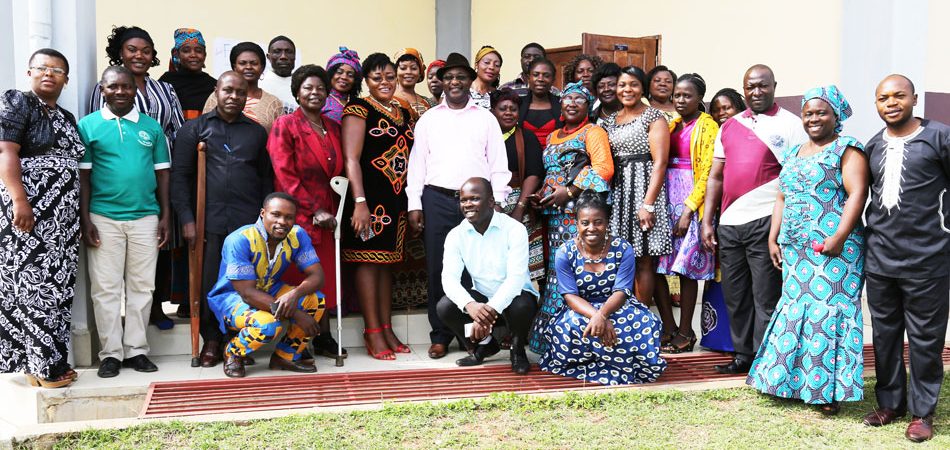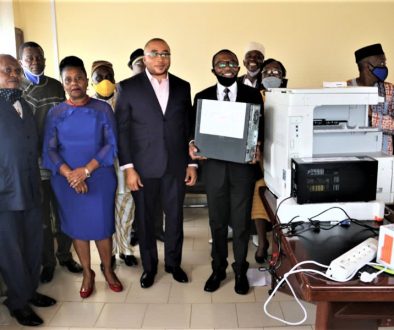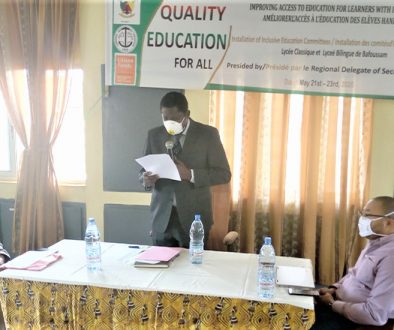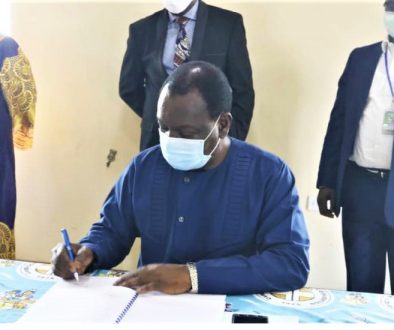MINPROF Leads Crusade to Ensure Accessibility for PWDs
By Ngum Rita
Northwest Regional Delegate of Women’s Empowerment and the Family (MINFROF) has challenged Directors of Women Empowerment Centers (WEC), Non-Governmental Organizations (NGOs), Civil Society Organizations (CSOs), Community Based Rehabilitation (CBR) field workers of the CBC Health Services, and leaders of Disabled Persons Organizations (DPOs) to take measures in ensuring that persons with disability are able to access public structures. Persons with disability have the right to access public structures and services like any other persons.
The Regional Delegate, Mr. Wirba Asan, was speaking recently at the Pastoral Center Mendankwe in Bamenda at the start of a two-day workshop organized by MINPROF in partnership with the Socio Economic Empowerment of Persons with Disability (SEEPD) program. The workshop took place within the context of a Memorandum of Understanding signed between MINPROF and the SEEPD Program to evaluate the progress made so far and to improve on the capacity of WECs and NGOs in mainstreaming gender and disability in activity implementation.
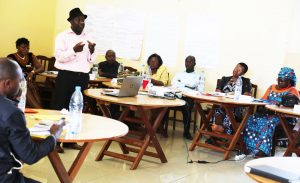
A mini documentary produced by the SEEPD program was projected at the start of the workshop. The video portrays the ramps constructed at the Northwest Delegation of MINPROF building and the WEC in Fundong, Boyo Division as a means of facilitating access for women with disability. Amazed at how women with disabilities (WWDs) can be mainstreamed in development actions if given access, the participants all pledged to be advocates at their different levels to ensure that women and especially WWDs are not left out of development.
Given that MINPROF had organized some workshops in collaboration with the SEEPD Program in the past, participants shared achievements they have realized after acquiring skills from such workshops. They acknowledged that as a result of the partnership with the SEEPD program, more WWDs now have access to vocational training in Women Empowerment Centers (WECs), acquiring skills in bead making, computer skills, sewing, etc. which have improved on their livelihood.
Mercy Chia, a 22-year-old girl with mobility impairment is one of many girls and women with disabilities who have benefited from vocational training at the Fundong Empowerment Center. She says she has acquired beads making and computer skills at the Center without paying a tuition fee thanks to a move by the Regional Delegate of MINPROF which ensures that women with disabilities acquire trainings in WECs without paying a fee.
“If not for the move by MINPROF granting me the opportunity to be trained through a circular, I couldn’t have been able to learn a trade because my parents were unable to afford it,” explains the visibly overjoyed Mercy. Mercy adds that she is now living her dream as she is looking forward to starting her own business.
The workshop was also an opportunity to share challenges faced by participants in mainstreaming workers with disability due to the absence of Women Empowerment Centres (WECs) in all the divisions, low self-esteem amongst women with disabilities, and inaccessible infrastructures.
Responding to these challenges, the Regional Delegate advised on how they can handle some while promising to deal with the others at the level of his office. The main facilitator of the workshop, Josephine Nsono, drilled participants on how to better mainstream gender in their work.
Mr. Ndang Samkoh and Mrs. Lanjo Kila Christaine, Directors of WECs Mbengwi and Kumbo, respectively, said the workshop will help them ensure an increase in enrolment of women with disabilities in their Centers.
At the close of the workshop, the Delegate lauded the partnership between the CBC Health Services’ program and MINPROF and wished that the partnership can continue beyond 2018. He noted that the Minister of MINPROF is impressed with the partnership and requested the CBC Health Services to extend the partnership to other regions of Cameroon given its positive impact.
